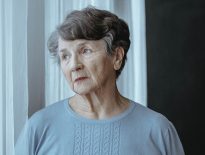“Circumstances do not matter when you have a dream.” This seems to be the central message of the stories of those who have succeeded despite unimaginable obstacles. But can dreams still be born in the midst of the struggle for survival, in depravity, and misery? And even if they are born, do they have a chance of survival?
Phiona Mutesi doesn’t know when she was born. Her mother assumes it was somewhere in 1996, but she’s not sure. In the slum where she was born, both clocks and calendars are things that few can afford. Phiona is one of thousands of children living in the eight slums of Kampala, the capital of Uganda, riddled with crime, prostitution, and severe poverty.
Phiona was just three years old when her father died of AIDS and her older sister, Juliet, of an unknown illness. The few belongings they had were soon stolen from her aunt’s house, where they had found shelter after the deaths in the family. Her mother had not been to school, so she could not get a job.
The pair slept on the streets for a while. They did not know how many times they moved through Katwe, the poorest slum in Kampala, either because of the inability to pay their rent or because they feared that the place where they lived might collapse on them. No matter how often they moved, they couldn’t leave the slum. Everyone knew that “whoever is born in Katwe dies in Katwe” due to violence, abandonment, or illness. Phiona was close to death twice as a child, most likely from malaria.
Phiona stopped going to school after her father’s death and began selling corn on the streets of the city to survive. Her day began at 5 o’clock in the morning, when she had to go to fetch drinking water a few miles away. When it rained, the roads were flooded with garbage and manure, sewerage being a luxury that the residents of the slum do not benefit from. Then she had to sell corn and take care of her younger siblings, because her mother was away most of the day buying fruit from the town market and selling it on the streets to make some money.
One day when Phiona was nine years old, she was desperate to find something to eat because she hadn’t eaten in three days. She followed her younger brother, Brian, who had been sneaking around for the last couple of days and disappearing for a few hours. She thought he had found a source of food.
She arrived in front of a dilapidated church, where several children were playing on a few boards with beautiful black and white pieces. Surprisingly, they were very calm. “I watched them play the game and get happy and excited, and I wanted a chance to be that happy,” says Phiona. Robert Katende, who taught children to play chess, noticed her and invited her to join the others.
Robert was an employee of the Christian mission in Katwe and coached the football team. He had also been a child who had struggled to survive. His mother had died when he was little, and he had spent his childhood sleeping in the bushes and desperately looking for food. Sport had saved him when he had been helped by a Christian mission, and now he was a university graduate.
Because no one hired him as an engineer, despite his outstanding college results, Robert had come to Katwe to do for other children what others had done for him years before. Because not all children loved football, in his free time he taught them chess. He had been reluctant at first—what could they understand from the game of chess? There wasn’t even a name for the game in their language. He lured them with the porridge he offered them at the end of training, but he was surprised to see that they really liked the game.
Chess was about them, about their lives. “Chess is a lot like my life. If you make smart moves you can stay away from danger, but any bad decision could be your last,”[1] Phiona says. In just six months, she reached the level of those who had been studying for two years. Robert noticed that she had a great talent and extraordinary determination. She walked six miles every day just to learn how to play.
In 2009, three of the “pioneers”, as the children of the chess club called themselves, managed to reach the African Junior Championship in Sudan. It was the first time they had left the slum and the first time they had flown by plane. Above Uganda, Phiona wondered if she had reached heaven. In Sudan, they slept in a bed for the first time and were able to order whatever food they wanted. Everything was new and amazing for the kids. Even more amazing was the success of the three, by far the youngest and most inexperienced competitors—they won the championship.
Returning to the slum also meant returning to their daily problems. They decided they couldn’t keep the trophy, as it was likely to be stolen from them. Although they were champions, their main concern was finding food. Something had changed, though. If until then they had not thought about their lives—violence, misery, and disease being part of their normality—now chess had forced them to see things differently, to gain the determination and perseverance to overcome their condition.
In 2010, participating in the International Chess Olympics in Russia brought Phiona international recognition. Although she was not at the level of those present there, the girl’s successes were extraordinary, considering her past. Tim Crothers, an American journalist for ESPN, decided to write an article about her story, which soon went viral. She was famous, but she still lived in the slum, struggling to survive, and training resolutely for competitions.
It wasn’t until 2013 that she was able to enroll in school with the money she earned from the copyright for the book written by Tim, Queen of Katwe. Tim had visited her at her home in the Katwe slum after writing the article, and what he saw there impressed him and led him to write the book. She used the royalties from a film based on her story to buy land outside the slum, on which she built a house for her mother. Phiona’s efforts, which her mother had never understood, but which she had supported as best she could, were finally rewarded.
Phiona represented Uganda at three other international Olympics, and in 2017 she enrolled as a student at Northwest University in Kirkland, Washington. Her dream is to become a great chess master, but also a lawyer. “I pray to God just, like, I continue my life, continue to inspire many kids to come in to get to learn what is life exactly,”[2] Phiona says. And, at just 21, she has plenty of time and enough “pieces” to make her move.




















